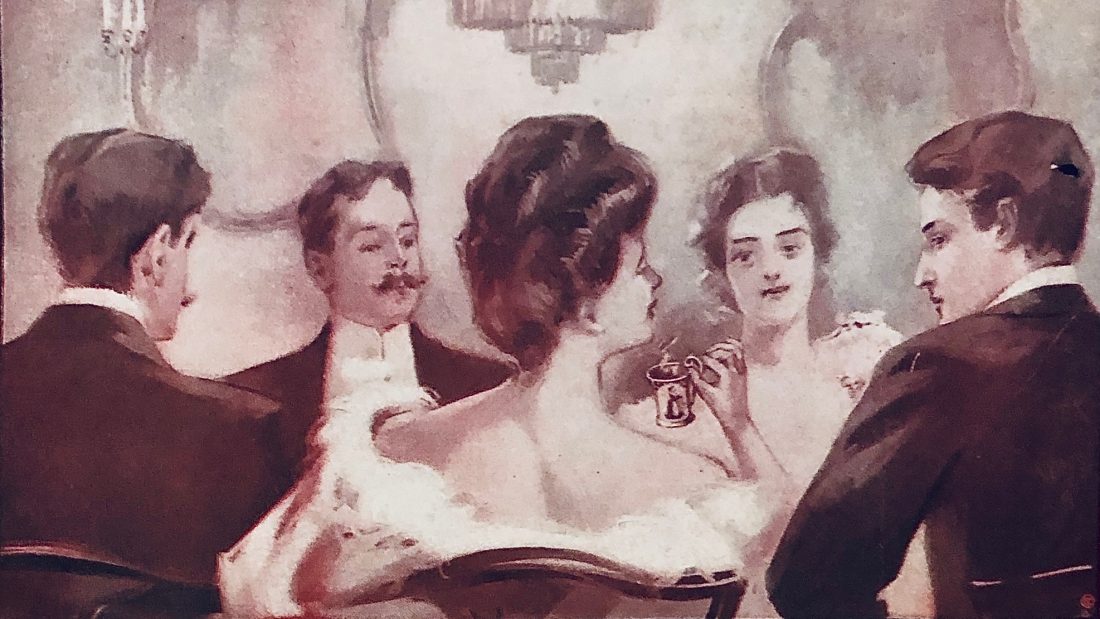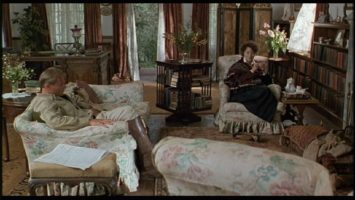Hello friends,
File this tidbit of information under useless things – I graduated college with degrees in Art History and English. Yup. Two majors, not one with a job prospect attached to it.
I can’t say I regret it. I loved studying Art History and English Literature. When you study a painting, you don’t just need to know about technique and perspective. You study artists biographies. Who was the artist? What influenced her or him? How did his or her life lead to the point in which this work of art was created? You need to know about history. What was happening at the time of the painting? What was the society like? What historical events might have influenced the subject matter? You need to know what was happening in the literature and music of the time. You can’t look at a painting from 1913 without understanding not only the political events of the time, but also an event like the Rite of Spring Riot. Or look at Calder’s work in the 1920’s and not take Jazz into account. When you delve into great work of art, you look at a society entire, frozen in a moment.
Now you can enjoy a work of art without knowing anything about it and there is absolutely nothing wrong with that, but I like knowing why something exists, not just that it does.
English literature is the same. To understand any historical novel deeply, it helps to understand the time in which a book was written. If you love Jane Austen, you realize just how much of the lives of her heroines are dictated by Regency etiquette rules. While anyone can enjoy Austen without knowing the minutia of how a ball is run or whom precedes whom, it can truly enhance ones understanding of why the characters behave as they do.
While I’ve been interested in etiquette since I was a little girl, it was in making these connections at school that I fell madly in love with the history of etiquette.
Let me put it this way, if you don’t understand the Boston Tea Party, you can’t understand how tea fell out of favor in the United States and what that meant for entertaining in Colonial America. Understanding prohibition can help explain the rise of cocktails among Europeans. There are connections everywhere.
It is one of the most rewarding aspects of learning about the history of etiquette that you can begin to suss out the day to day concerns of people in history. In the same way that knowing the etiquette of a period can enlighten us to why characters act a certain way in literature, the literature from a given period conversely gives context to the rules of etiquette from that period.
For myself, when I want to begin understanding a period in time, I listen to its music. Nothing gives me a quicker insight into an era than the ballads people sang, the music they played at social occasions, and the dance music that they cut a rug to.
Next, I’ll look at the art and the architecture. So much of a culture is elucidated by the objects they looked at and the buildings in which they lived, worshiped and worked in. Food and clothing are equally important. How did they eat in the different class strata and what meanings did they take from their meals? Clothing says so much about the wearers status, the social and political concerns of the society and on occasion what was physically possible for the wearer.
Knights developed code of chivalry because they lived in a feudal state. Victorians developed etiquette rules about weighted doilies because improvements in science taught them that disease could come from bacteria and germs. Once you start seeing the connections, it’s an endless rabbit hole.
I’ve been thinking about this a lot lately. How have our own rules for etiquette been changed by Covid-19? So many of us have been forced to grapple with what is good Zoom etiquette. We wonder how to navigate working with spouses, children and pets nearby without permanent estrangements. I wonder if shaking hands has been permanently removed from our repertoire of greetings. Will hugs be reserved for only our nearest and dearest? All of these questions will of course, be answered differently in different countries and regions. Truthfully, we won’t really know for a long time what lasting effects the pandemic has had on our society. The bigger trends caused by our living through a pandemic and extensive quarantines won’t be apparent until we have the luxury of hind-site.
If you think there are ways that Covid-19 has permanently changed how we behave, please let me know. I’d like to know what people are feeling elsewhere.
I’m sending you all love and hoping that this long and trying time hasn’t been too hard on you. x Cheri



